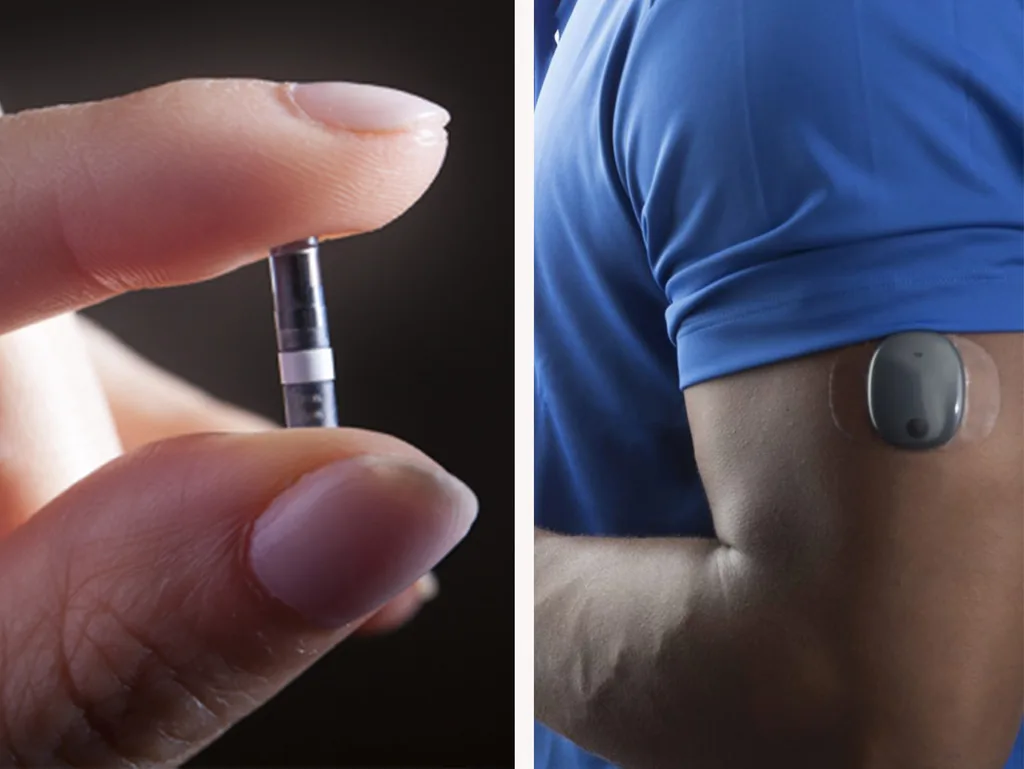It seems an alternative for finger prick tests may be just around the corner, thanks to a revolutionary new device.
The tech, called Eversense, appears slightly longer than a capsule, and is implanted under the skin of the upper arm by your doctor in a simple, five-minute procedure.
Once complete, the device, fitted with a tiny sensor, will monitor the body’s glucose levels and send regular data and alerts to the user’s smartphone should blood sugar levels drop too low, or rise too high.
An external transmitter worn over the insertion site will also vibrate to inform them of the low or high levels if the patient happens to lose connection with their smartphone.
What’s more, the implant lasts 90 days before replacement is needed, eliminating the often painful finger pricks those with diabetes will have to endure on a frequent basis.
The technology has been approved across Europe, but is yet to become available in Australia.

Image via: Eversense
The news comes as a 10-year study finds that the yearly rate of newly diagnosed cases of type 1 and type 2 diabetes is rising significantly in young people.
Published in the New England Journal of Medicine, researchers at The University of North Carolina found there to be a 1.8 per cent increase annually of new type 1 diabetes cases, and an alarming 4.8 per cent increase in type 2 diabetes diagnoses.
Signs and symptoms of diabetes
While some will experience no signs and live undiagnosed for lengths of time, common symptoms include:
Increased thirst
Frequent urination
Feeling tired and lethargic
Nausea and vomiting
Slow-healing wounds
Blurred vision
If you are experiencing the above symptoms, or wish to find out more about diabetes, book in with your trusted GP today.


